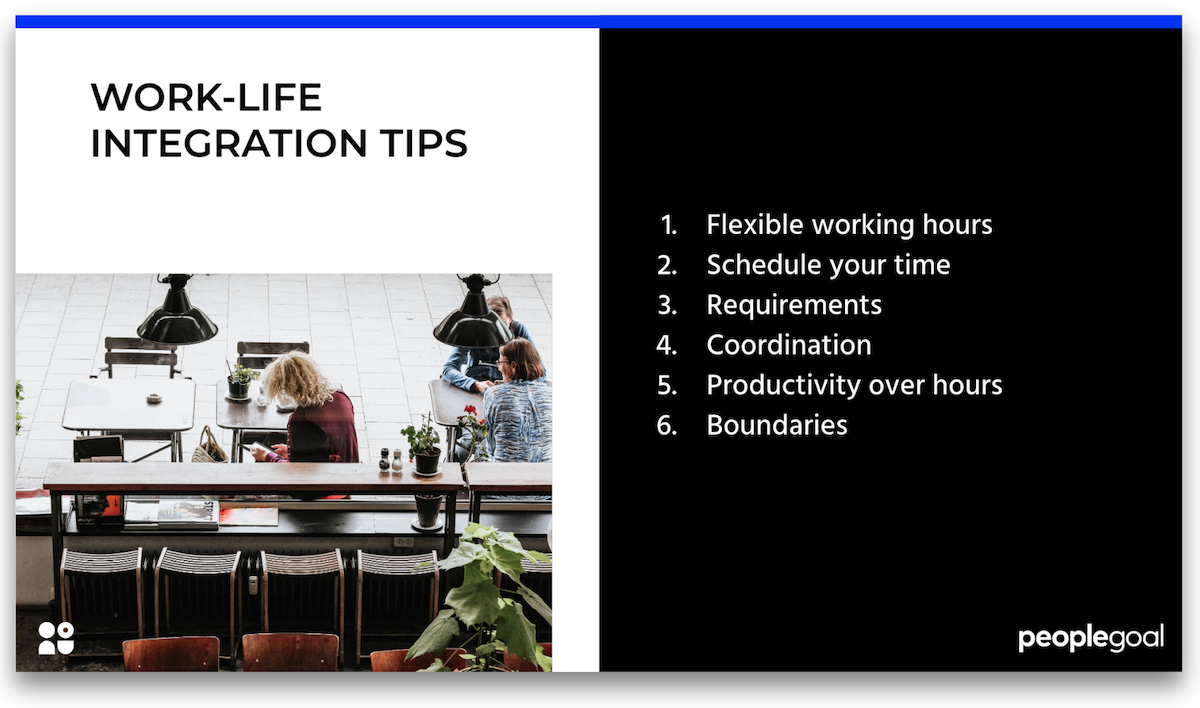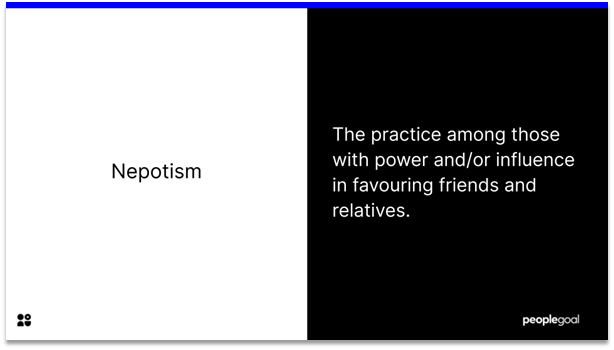Work stress awareness should be a priority for every organization to improve the employee experience. April marks the start of Stress Awareness month, with April 16th the prescribed day focusing on stress in the US. This awareness is becoming increasingly important and the statistics back this up…
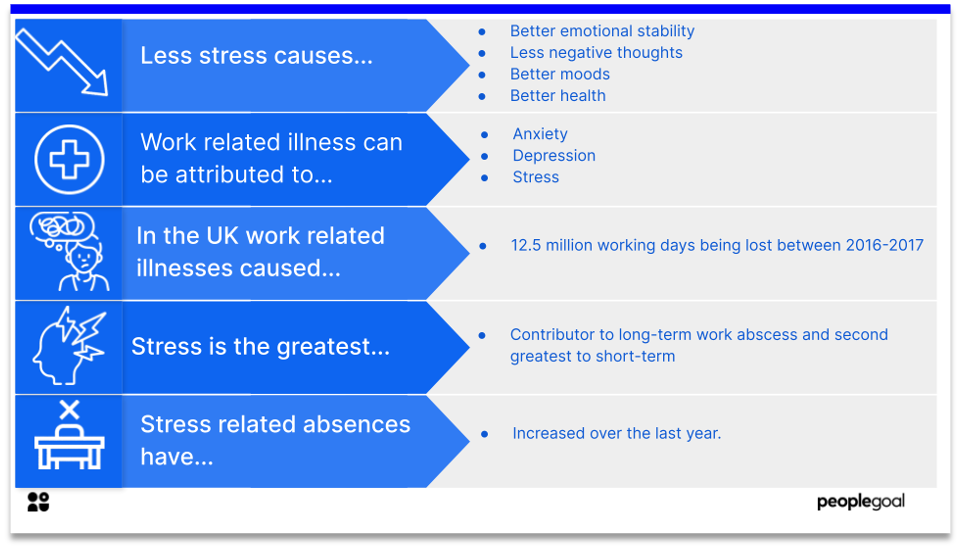
- Research has been showing that when you have fewer stressors in your daily life, you have increased emotional stability reducing negative thoughts about work as well as better moods preventing the high levels of physical and emotional stress commonly found. Finally, reduced stress leads to overall superior health preventing health problems such as cardiovascular disease.
- According to the Health and Safety Executive (HSE), 40% of work-related illnesses can be attributed to anxiety, depression, and stress.
- In the UK, they also found that this percentage of work-related illnesses contributed to 12.5 million working days being lost during 2016-2017.
- This is further emphasized by research from the CIPD’s 2018 Health and Wellbeing report, which found that stress is the greatest contributor to long-term work absence and the second greatest contributor to short-term absence.
- Furthermore, over a third of those surveyed reported that stress-related absence increased over the past year.
These staggering figures are evidence that stress is taking a real toll on the workforce reducing job security and employees’ ability to cope in stressful situations. We’ve compiled a list of helpful tips and useful tactics to reduce stress in the workplace both as an employer and as an employee.
The employee perspective:
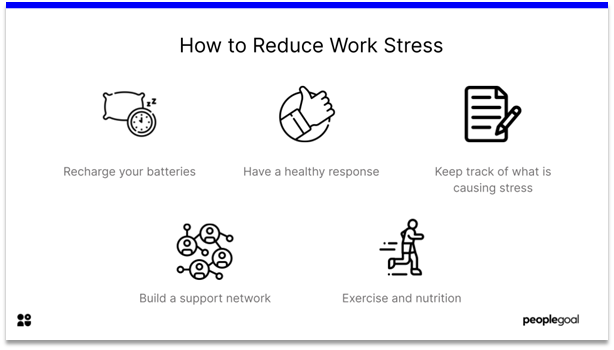
Recharge your batteries
Avoiding chronic stress and eventual burnout is key to improving an individual’s health. You, the individual, need to make sure that you spend enough time relaxing and ‘switching off from work’. Therefore, maintain a good amount of sleep a night and adjust working hours if the stress on the job is becoming too much.
Have a healthy response
When confronted with stressors, try to build a healthy response for when they arise. This process develops over time and initially, it may seem difficult. When stressors arise don’t use unhealthy choices to overcome the short-term stress. Instead, try to build resilience to the stress.
Have a read of Mental Health UK’s booklet on ‘Managing stress and building resilience in the workplace’ for greater insight. This will give you some great tips on how to control your emotional response and give you some sense of control in these situations.
Keep track of what is stressing you
Try to keep a journal of the things or situations which have stressed you out over a period of time. Record your thoughts, feelings, and information concerning the incident. Recording information can help to identify patterns and in turn develop an action plan for building resilience to stressors.
Build a support network
Building a network and accepting help from others is vitally important, especially in the individualistic culture of the westernized world. It may be family, friends, colleagues, or your manager. Some employers may have stress management resources which include online resources, counseling and if needed, and referral to mental health professionals to gain medical advice.
Exercise and Nutrition
Aerobic exercise – that which raises the heart rate – is an especially effective method to increase mood, health, and energy, as well as relaxing the mind and body. Conversely, rhythmic exercise – i.e. yoga, dancing, walking, etc. – helps to relax the nervous system. Research suggests trying and get at least 30 minutes a day of either type of exercise.

Nutrition is super important as I’m sure you are all aware. According to HelpGuide.org, make sure you try to minimize excess sugar and refined carb intake; reduce the intake of foods that may adversely affect your mood (this differs between people, for example, caffeine can increase anxiety in some of the population) and drink alcohol in moderation in your downtime.
The employer perspective
Know the stress symptoms
People react to stress in different ways. As a manager/employer it is important to know the classic signs of stress, so you can help early on.
- Cognitive: Unusual pattern of making mistakes and impaired decision-making and judgment
- Physical: increased occurrence of flu, colds, and infection; sharp change in weight (loss or gain) and an unhealthy change in physical appearance (i.e. looking tired, unshaven, etc.)
- Behavioural: working long hours, not joining group conversations or socials, not reaching targets, and not taking proper lunch breaks
- Emotional: loss in confidence and self-esteem, loss of motivation, sensitivity to criticism, and individuals can often be irritable or angry
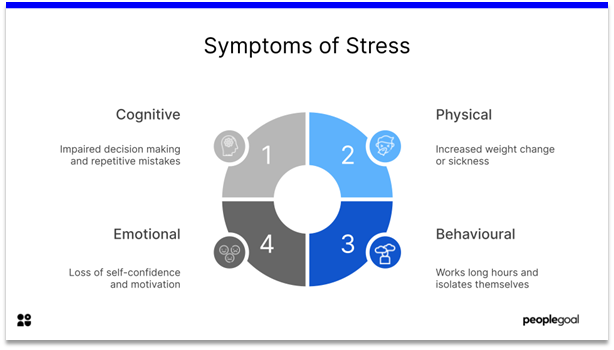
Identify the source of work-related stress
This tactic takes time and effort to truly make a difference. As a manager/supervisor/employer you need to work with the employee to try and identify the source of stress. It is important to note that often the employee’s stressors can be the result of a supervisor’s behavior. Here are some management tips for the effective management of employee stress:
- Be respectful in managing the emotions and feelings of an employe
- Try to help manage and communicate workload effectively
- Manage difficult situations as they arise, not after the fact
- Manage the individual within the scope of the team
- Offer support where needed
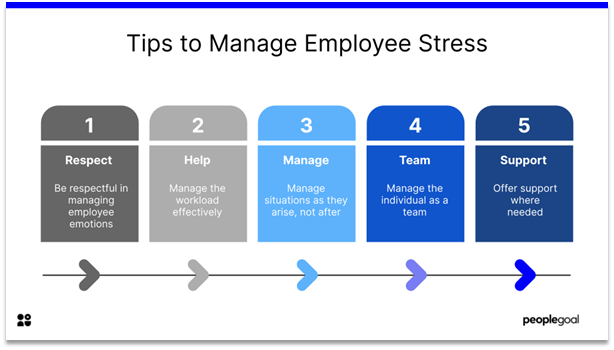
Longer-term strategies
It is important not to underestimate the importance of longer-term considerations. They will take more time and effort to set up than shorter strategies, but they hold a lot more power. Possible ideas for longer-term strategies include:
- training
- self-help ideas and planning
- 3rd party help (i.e. employee assistance programs)
- flexible working plans or changes in the work environment itself.
The talking toolkit
The Health and Safety Executive (HSE) has recently released a new Talking Toolkit to help employers prevent work-related stress. The toolkit is comprised of six conversation templates that have been designed to support managers and employees to talk about issues that may be causing work-related stress. Download the toolkit here.
Workplace stress: Protect you and your business
Stress is becoming a larger more serious problem across the workforce, causing job insecurity, poor problem-solving abilities, and reduced job satisfaction. Tackling stress and its unhealthy correlates is an important issue which employees and employers alike need to work together to solve.
Ready to 3x Your Teams' Performance?
Use the best performance management software to align goals, track progress, and boost employee engagement.




